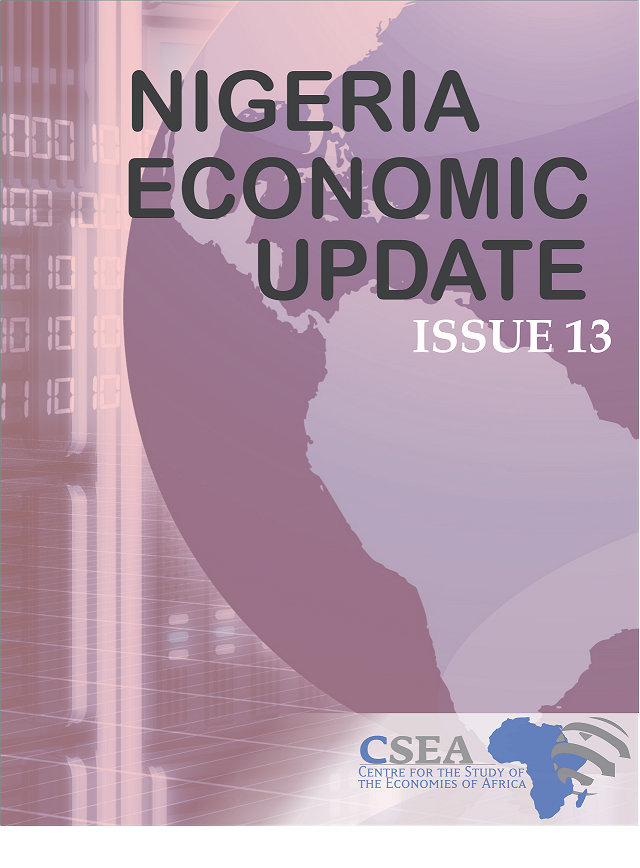Recent media highlights suggests that the Federal Government made a non-oil-based revenue of N1.27 trillion from operating surpluses between 2007 and 20161. The period which covers the years of operation of the Fiscal Responsibility Act, shows a list of agencies and government organizations that paid the operating surpluses (revenues above approved budgetary expenditure at the end of each year) to the federal government. Notably, the annual remittances shows year-on-year increases. This is likely attributable to the improved monitoring and intervention activities of the Fiscal Responsibility Committee over the years. There is greater scope for operating surpluses from public corporations with intensified efforts at monitoring the implementation of the template for calculating operating surplus liabilities across scheduled corporations.
Macroeconomic Report & Economic Updates

March 9, 2018
Nigeria Economic Update (Issue 13)
Recent media highlights suggests that the Federal Government made a non-oil-based revenue of N1.27 trillion from operating surpluses between 2007 and 20161. The period which covers the years of operation of the Fiscal Responsibility Act, shows a list of agencies and government organizations that paid the operating surpluses (revenues above approved budgetary expenditure at the […]
Read →
Related
Nigeria Economic Update (Issue 44)
Latest
Doing Business report by the World Bank ranks Nigeria as one of the top 10 economies
that showed notable improvements in doing business in 2016/2017. Precisely, the
report which presents quantitative indicators on business regulation compared
across 190 economies and ranked Nigeria 145th - up by 24 positions from
the previous report ranking, to reach its highest rank since 2013. This may not
be unexpected, given that it is consequent upon various business environment
reforms in 2016. Particularly, the Presidential Enabling Business Environment
Council (PEBEC) set up in 2016 enacted 31 reforms to improve
business(such as improving credit to small and medium-size
businesses) all of were enacted into law in May 2017.
Nigeria Economic Update (Issue 2)
Inflation rate rose slightly to 9.4 percent in
November 2015 from 9.3 percent in the previous month. This rise is attributed
to price increase in Food and Non-Alcoholic Beverages, and Transportation costs
which extends from shortages of petrol across the country. The food
sub-index grew by 0.2 percentage points to 10. 1 percent while, the Core sub-index
declined by 0.2 percentage points to 8.7 percent within the period. The
inflationary up-tick points to the need to curtail the rising food prices by
increasing the supply of petrol in the country.
